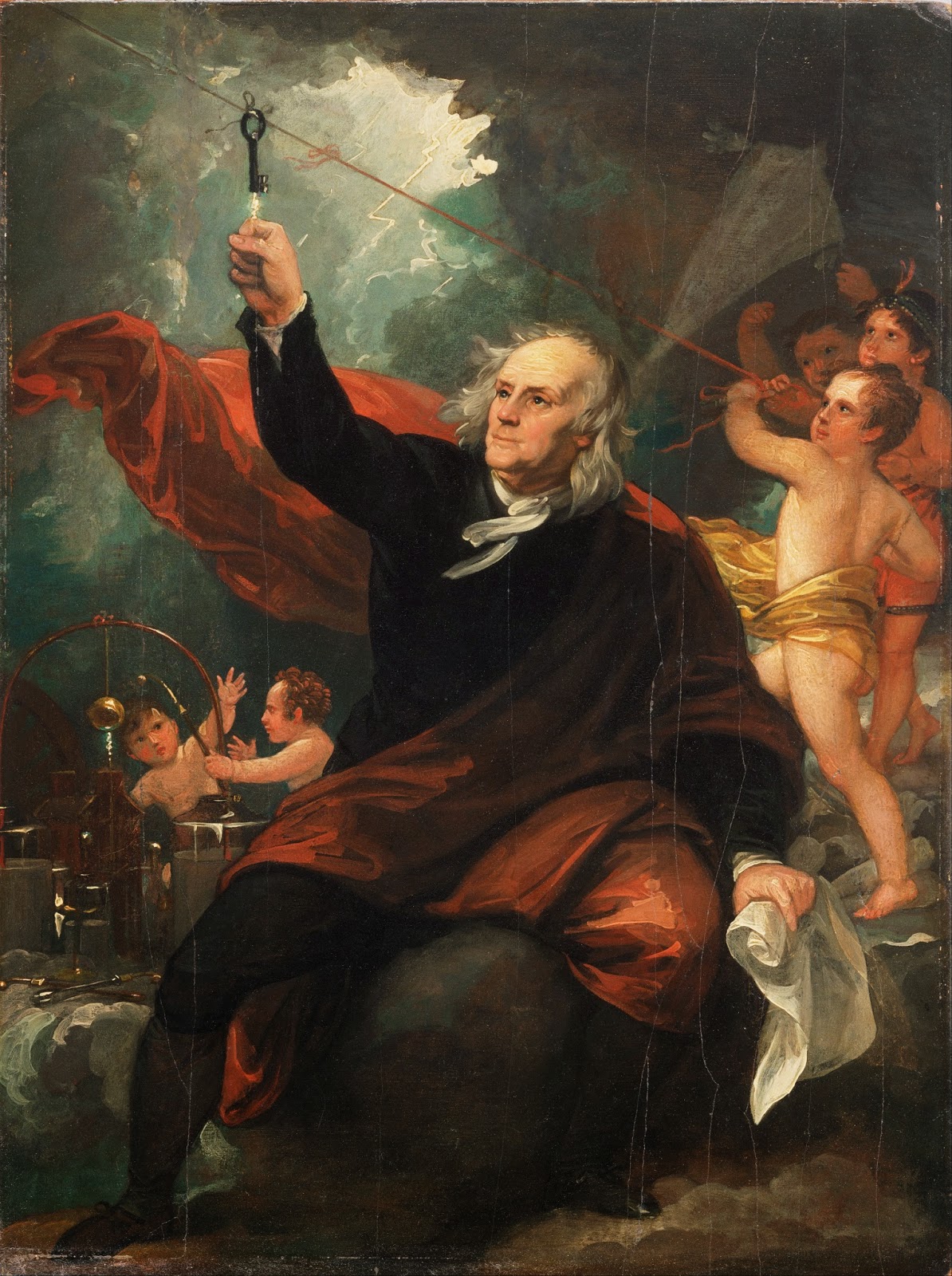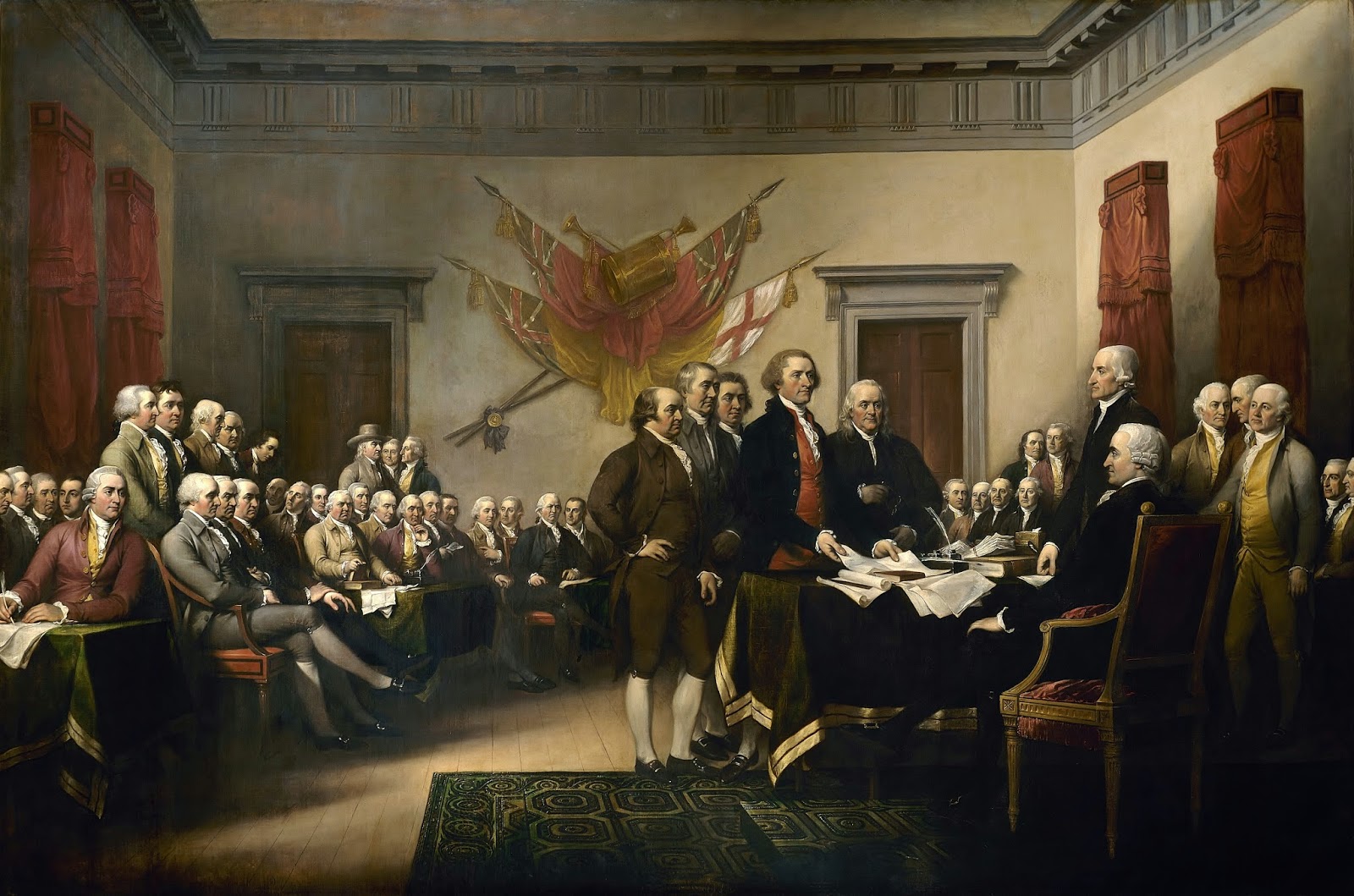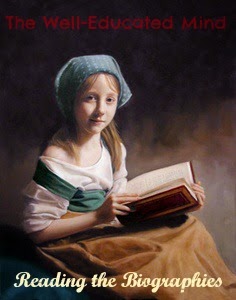"Dear Son, I have ever had a Pleasure in obtaining any little Anecdotes of my Ancestors."
Known as one of the founding fathers of the United States, Benjamin Franklin grew up in Boston, but after being apprenticed as a printer to his brother, they had a heated disagreement and Franklin ran away to Philadelphia. Single-handedly, he built his own printing business and later became recognized for organizing the first lending library, starting a volunteer fire department and inventing the Franklin stove, along with numerous other sterling accomplishments. His autobiography ends in 1757 with his involvement in the French-Indian Wars but, as most people know, Franklin went on to great feats, being involved in the Revolutionary War, and helping draft the Declaration of Independence, the Constitution and the Treaty of Paris, which ended the war.
_-_Benjamin_Franklin_Drawing_Electricity_from_the_Sky_-_Google_Art_Project.jpg) |
| Benjamin Franklin drawing electricity from the sky (1816) Benjamin West source Wikipedia |
I particularly enjoyed the first part of this autobiography, as Franklin describes his boyhood, his apprenticeship to an overbearing brother and his flight to Philadelphia where he eventually lands a job as a printer and later runs his own company. His ability to examine a situation thoroughly and quickly and then be able to proceed with aptitude and insight into any challenge, was his trademark, and the reader can understand how he rapidly won the respect of the community and his fellow businessmen. Being self-educated, Franklin had a love of good literature and along with that, good discussion, which led him to found the Junto club where he, along with other like-minded young men, hoped that by improving their minds through reading, they could better their community around them.
The main emphasis of Franklin's discourse was on "Wealth and Distinction" through accomplishment, employing "Industry and Frugality" to meet his goals. He noticed everything to the minutest detail and had an idea for the betterment of everything, including housekeeping, the communicating of instruction, virtue, personal growth, and even religion. Virtue was a particular focus of Franklin's, as he was convinced that "vicious Actions are not hurtful because they are forbidden, but forbidden because they are hurtful, the Nature of Man alone consider'd: That it was therefore every one's Interest to be virtuous, who wish'd to be happy even in this World." He set up a system to eradicate his faults and instil virtue, by working on one shortcoming at a time and moving to the next, only when the former was perfected. His list read as follows:
Through using this method, Franklin expressed himself surprised at his numerous faults. Though it did not have the success he had expected, at least through application he was able to temper his faults to a greater degree than if he had never attempted the experiment.
 |
| Benjamin Franklin (center) at work on printing press Reproduction of Charles Mills painting source Wikimedia Commons |
Franklin's style is rather continuous and so often muddled that it required effort to follow his train of thought. He states that he's writing the biography for his son, but it was almost as if he was writing for himself, in that he had all the experiences and all the information in his head, and therefore didn't need to give additional details, which would have been useless for him, but perhaps helpful to the uninformed reader. He sounded like quite a character though, rather impressed with himself and his achievements in spite of the feeble dose of humility that he attempted to add as an ingredient to his narrative.
 |
| The Declaration of Independence (1818) John Trumbull source Wikipedia |
In fact, from the recent biographies that I've read, I've been struck by the pride and almost cavalier self-esteem of some of the authors. While there can be a humbleness to their communication, it appears to be a forced diffidence that still smells of a hubris that they can't quite shake. Perhaps this type of arrogance is needed in all great men, but, as I travel chronologically through these biographies, I certainly sense less of a reliance on external sources (respectable mentors, family and God/religion) and more of a sole reliance on self and philosophical ideas.
The next biography is Walden by Henry David Thoreau.

 Log in with Facebook
Log in with Facebook 







